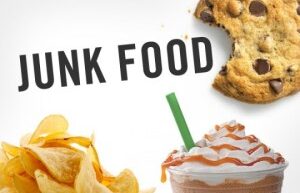
Let me start off by saying that I’m not a low carb fanatic; however, I do believe that one of the main reasons so many people struggle to ever lose any body fat is that they are over consuming processed grains or sugary carbohydrates.
It is extremely hard to lose body fat if you’re over consuming any of the wrong types of carbohydrates (even if you exercise very hard). In addition to causing extreme blood sugar swings and insulin surges which can promote body fat deposition and throw your hormonal balance out of whack, eating too many carbs also increases your appetite and cravings, leading you to eat more calories overall compared to if you ate a higher percentage of fat.
Here are 5 rules for eating carbohydrates:
1. Reduce or eliminate your grain-based carb products in the diet (cereal, pasta, rice, crackers, etc) and focus more of your diet on healthy grass-fed and/or free-range meats and eggs, grass-fed raw dairy or fermented dairy (kefir and yogurt), nuts, and tons of vegetables and fruits (for most people, keeping fruit to 1-2 pieces per day is best if you’re trying to lose weight).
2. Instead of the grains for most of your carbs, try getting most of your carbs from vegetables, sweet potatoes, and a variety of whole fruits and berries (NOT fruit juices, which remove the beneficial fiber as well as other essential parts of the fruit).
3. If you’re going to eat any grains at all, focus on sprouted grains if you can, or sourdough on the occasions that you absolutely need to have bread. Since sourdough bread has been fermented, some of the antinutrients have been broken down, and even the gluten is thought to be at least slightly more digestible in sourdough bread.
If you are choosing sprouted grain breads, make sure that it’s 100% sprouted grain, and not regular flour as the main ingredient followed by a portion of sprouted grains. Sprouted grains are healthier than “whole grains” because the sprouting process deactivates many of the antinutrients that can cause digestive problems and prevent certain minerals from being absorbed.
4. Avoid nutrient poor carbohydrates. Even carbohydrate sources that most people think are “healthy” usually are just excess calories that don’t really deliver a whole lot of nutrient density… and many types of breads and cereals pretend to be “whole grain” with clever marketing while in reality the first ingredient in them is refined flour, which is just going to shoot your blood sugar through the roof.
However, even “whole grain” products have been shown to have just as much of a massive blood sugar impact as refined grains in many cases, particularly when it comes to wheat products. And unfortunately, whole grains are also bad because it’s generally the bran portion of grains that contains the majority of gut-damaging antinutrients that can inflame your digestive system or prevent absorption of certain minerals by your body.
Here are some examples of carbs that don’t offer any substantial nutrients:
• cereals
• pasta
• rice
• bagels
• muffins
• breads (even whole grain varieties are not ideal if you’re looking to lose body fat & prevent digestive system damage)
• sodas (loaded with sugar and/or high fructose corn syrup)
• juices (way too much fructose and total sugar without any of the fruit fiber)
• candies
• crackers
5. To replace the void if you’re used to consuming lots of bread, pasta, cereals, and other carb sources… try filling that void with more healthy fats such as nuts, seeds, avocados, coconut oil, olive oil, olives, grass-fed butter and cream, aged cheeses, nut butters, as well as healthy proteins such as grass-fed dairy and meats, whole free-range organic eggs, etc.
Healthy fats and proteins go a long way to satisfying your appetite, controlling proper hormone and blood sugar levels, and helping you to make real progress on fat loss. Consuming more healthy fats instead of carbs also helps to transition your metabolism into a “fat adapted metabolism” instead of being a “carb burner” like most people.
Having a “fat adapted metabolism” gives you more stable energy levels, stable blood sugar, balanced hormones, and more. On the other hand, being a carb-burner gives you more energy spikes and dips, blood sugar swings, and cravings.






Add comment